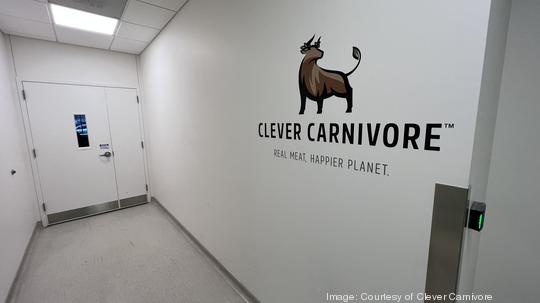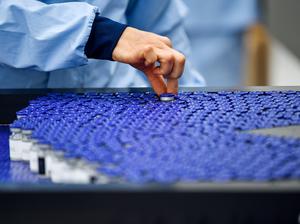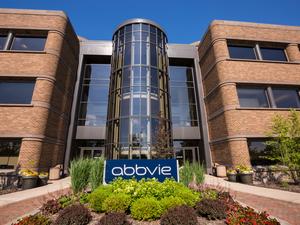
Clever Carnivore, as the name suggests, is rethinking how meat can be produced in this country.
The meat-making biotechnology startup recently opened a new 4,200-square-foot facility at 2430 N. Halsted St. in Lincoln Park and has raised $2.1 million in pre-seed funding as it hopes to be at the forefront of the cultivated meat market.
Clever Carnivore makes actual pork, beef and chicken using stem cell biology and bioengineering.
"The new space essentially gives us the space to not only grow the company, but the meat itself. We think we will have product prototype ready by the end of 2023," CEO Virginia Rangos, Ph.D, told the Chicago Business Journal. "Part of that involves bringing food scientists onto our team."
Rangos, a vegetarian herself, wants to be part of the solution in a country where 10.5% of households — or 13.7 million families — experienced food insecurity in 2019, according to USDA data cited by the company.
"It sounds funny on the face of it, but it makes all the sense in the world because there are a lot of problems with the current factory farming industry, one being use of resources, and two the ethical treatment of animals," she explained. "I think there are a lot of vegetarians who would be interested in solving some of these problems."
She doesn't see the cultivated meat industry as a "pie in the sky" either.
Valued at $133.4 million in 2021, the global cultured meat market size is expected to reach nearly $500 million by 2030, according to Polaris Market Research.
One of the advantages of the cultivated meat industry is that it requires much less space than typical meat production, though Rangos admits that scalability will be the most difficult challenge in growing the company.
While Clever Carnivore has begun producing its product, it will be some time before it's ready to be sold to the masses.
"At this current facility, we wouldn't be producing meat on a commercial scale, but we are actually meeting some pretty exciting benchmarks," Rangos said.
Costs for lab-grown meat products are currently higher than those of their conventional counterparts, but Rangos hopes that with increased volumes, production costs can be lowered.
"We have what amounts to at this point a $10 burger, and as we continue to scale, we'll bring that cost down considerably," she said. "We're hoping to eventually get — and we think this is quite a practical — to a $1 burger, essentially."
Rangos said the plan will be to move into a warehouse space — with some possible candidates in the West Loop — as the company continues to grow.







